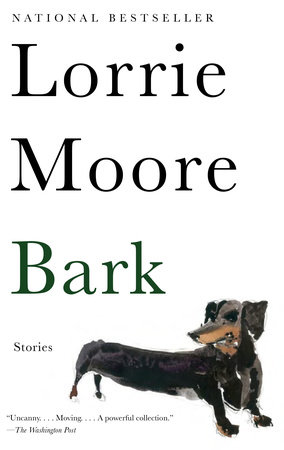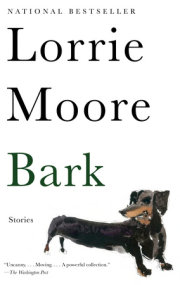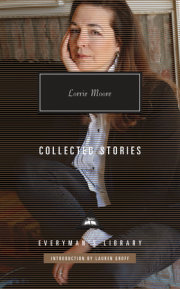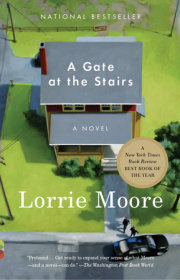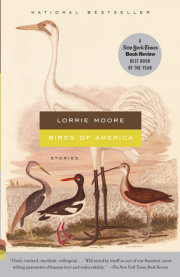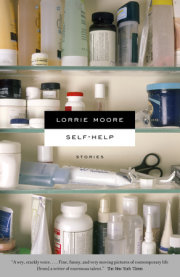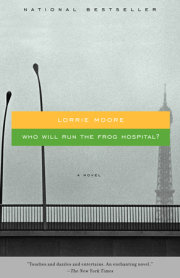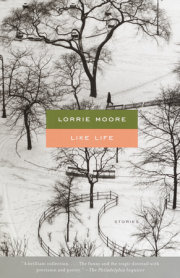From "Thank You for Having Me"
The day following Michael Jackson’s death, I was constructing my own memorial for him. I played his videos on YouTube and sat in the kitchen at night, with the iPod light at the table’s center the only source of illumination. I listened to “Man in the Mirror” and “Ben,” my favorite, even if it was about a killer rat. I tried not to think about its being about a rat, as it was also the name of an old beau, who had e-mailed me from Istanbul upon hearing of Jackson’s death. Apparently there was no one in Turkey to talk about it with. “When I heard the news of MJackson’s death I thought of you,” the ex-beau had written, “and that sweet, loose-limbed dance you used to do to one of his up-tempo numbers.”
I tried to think positively. “Well, at least Whitney Houston didn’t die,” I said to someone on the phone. Every minute that ticked by in life contained very little information, until suddenly it contained too much.
“Mom, what are you doing?” asked my fifteen-year-old daughter, Nickie. “You look like a crazy lady sitting in the kitchen like this.”
“I’m just listening to some music.”
“But like this?”
“I didn’t want to disturb you.”
“You are so totally disturbing me,” she said.
Nickie had lately announced a desire to have her own reality show so that the world could see what she had to put up with.
I pulled out the earbuds. “What are you wearing tomorrow?”
“Whatever. I mean, does it matter?”
“Uh, no. Not really.” Nickie sauntered out of the room. Of course it did not matter what young people wore: they were already amazing looking, without really knowing it, which was also part of their beauty. I was going to be Nickie’s date at the wedding of Maria, her former babysitter, and Nickie was going to be mine. The person who needed to be careful what she wore was me.
It was a wedding in the country, a half-hour drive, and we arrived on time, but somehow we seemed the last ones there. Guests milled about semipurposefully. Maria, an attractive, restless Brazilian, was marrying a local farm boy, for the second time—a second farm boy on a second farm. The previous farm boy she had married, Ian, was present as well. He had been hired to play music, and as the guests floated by with their plastic cups of wine, Ian sat there playing a slow melancholic version of “I Want You Back.” Except he didn’t seem to want her back. He was smiling and nodding at everyone and seemed happy to be part of this send-off. He was the entertainment. He wore a T-shirt that read, thank you for having me. This seemed remarkably sanguine and useful as well as a little beautiful. I wondered how it was done. I myself had never done anything remotely similar. “Marriage is one long conversation,” wrote Robert Louis Stevenson. Of course, he died when he was forty-four, so he had no idea how long the conversation could really get to be.
“I can’t believe you wore that,” Nickie whispered to me in her mauve eyelet sundress.
“I know. It probably was a mistake.” I was wearing a synthetic leopard-print sheath: I admired camouflage. A leopard’s markings I’d imagined existed because a leopard’s habitat had once been alive with snakes, and blending in was required. Leopards were frightened of snakes and also of chimpanzees, who were in turn frightened of leopards—a standoff between predator and prey, since there was a confusion as to which was which: this was also a theme in the wilds of my closet. Perhaps I had watched too many nature documentaries.
“Maybe you could get Ian some lemonade,” I said to Nickie. I had already grabbed some wine from a passing black plastic tray.
“Yes, maybe I could,” she said and loped across the yard. I watched her broad tan back and her confident gait. She was a gorgeous giantess. I was in awe to have such a daughter. Also in fear—as in fearful for my life.
“It’s good you and Maria have stayed friends,” I said to Ian. Ian’s father, who had one of those embarrassing father-in-law crushes on his son’s departing wife, was not taking it so well. One could see him misty-eyed, treading the edge of the property with some iced gin, keeping his eye out for Maria, waiting for her to come out of the house, waiting for an opening, when she might be free of others, so he could rush up and embrace her.
“Yes.” Ian smiled. Ian sighed. And for a fleeting moment everything felt completely fucked up.
Copyright © 2014 by Lorrie Moore. All rights reserved. No part of this excerpt may be reproduced or reprinted without permission in writing from the publisher.

